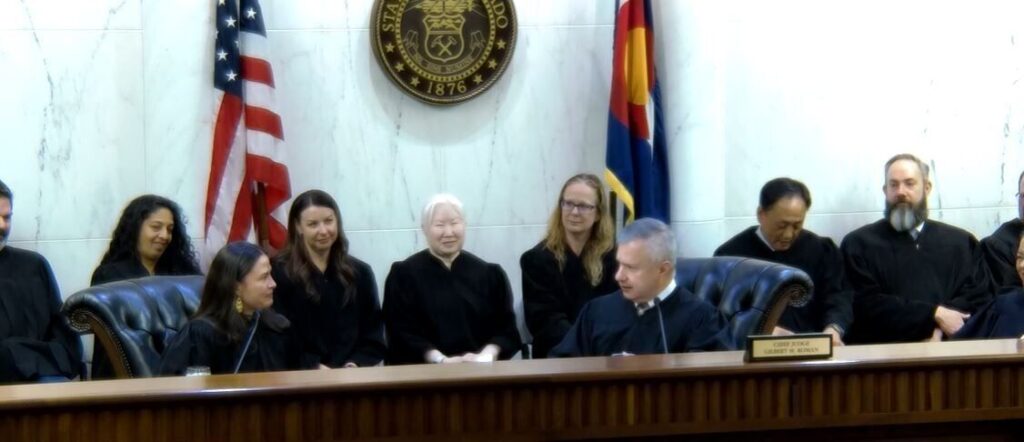A LOOK BACK | Republican guv candidate touts ‘warehouse banking’

Forty Years Ago This Week: John Grandbouche, founder of the National Commodity and Barter Association, announced that he would seek the Republican nomination for Colorado governor.
Grandbouche, who had run for lieutenant governor in 1978 on the Tea Party ticket, said he intended to bring local constitutional government back to Colorado. He said one of his primary goals was warehouse banking, a practice that he said would eliminate confiscatory banking and interest and taxing systems that were “bleeding the free enterprise capacity of this state.”
“I have successfully confronted the abusive practices of the Internal Revenue Service and other governmental agencies in the courts,” Grandbouche claimed. “And I am convinced that unless political action is taken, Colorado will lose its sovereignty along with the freedoms of its citizens.”
Meanwhile, the other Republican candidate for governor, John Fuhr, had just returned from a relaxing trip to Hawaii where he spent time “getting the golf course all shaped up,” he told reporters.
In other news, former state Rep. Nick Theos, a Meeker Republican who had lost his seat after just one term to Democrat Kathleen Sullivan of Meeker, said he was considering making a comeback.
“I plan on running again if I can get a good man to run my outfit,” the sheep rancher said.
“I’m a poor loser.”
Twenty Years Ago: The Senate District 26 Republican vacancy committee, which had convened to vote on a replacement for former Sen. Jim Dyer, voted 75-50 in favor of Steve Ward.
Betty Ann Habig, former Centennial City councilwoman, lost to Ward and filed a complaint with the state GOP over the vacancy committee’s selection process but stated that she wouldn’t challenge the results.
Habig told The Colorado Statesman that problems had begun nearly two months previously when party officials refused to give her a copy of the bylaws of the vacancy committee. Habig was then publicly reprimanded at a committee meeting by Michele Austin, the vacancy committee chair, for violating bylaws that had yet to be adopted.
“My intention is not to embarrass our party,” Habig said. “My intention is to make sure that the rules and the process are upheld.”
Ward, a colonel in the U.S. Marine Corps reserves, served from 1992-1996 as mayor of Glendale. He said that since he’d been away from home for much of the past five years he had not intended to get “back into politics.”
Ward said his initial plans were to serve one term as Arapahoe County commissioner after his 1996 election and then run for state Senate in 2000. But as soon as the 1996 election was over, Ward said he realized that he didn’t want to put himself or his family through that process again for at least 10 years.
“I had no intention of getting back into politics,” Ward said. “I was supporting Susan Beckman and then I was supporting Joe Stengel. It wasn’t until they both bowed out that I decided to run.”
“We were searching for the more conservative candidate in the western side of the county,” Ward said, “so here we are. The attractiveness of running in this vacancy quite frankly was I had a five-week election.”
Habig said it was Ward’s affiliation with the western half of the county, mostly Littleton, that pushed Ward over the top.
“Two thirds of the precinct leaders were from Littleton,” Habig said. “The bottom line was whoever could capture the hearts and minds of the voters of Littleton was going to win.”
Ward said he planned to focus on transportation and water issues in the coming two years and noted that as a county commissioner he’d become well versed in water issues and believed that more needed to be done to make it easier for water districts to forge alliances for water storage.
Rachael Wright is the author of the Captain Savva Mystery series, with degrees in Political Science and History from Colorado Mesa University, and is a contributing writer to Colorado Politics and The Gazette.














